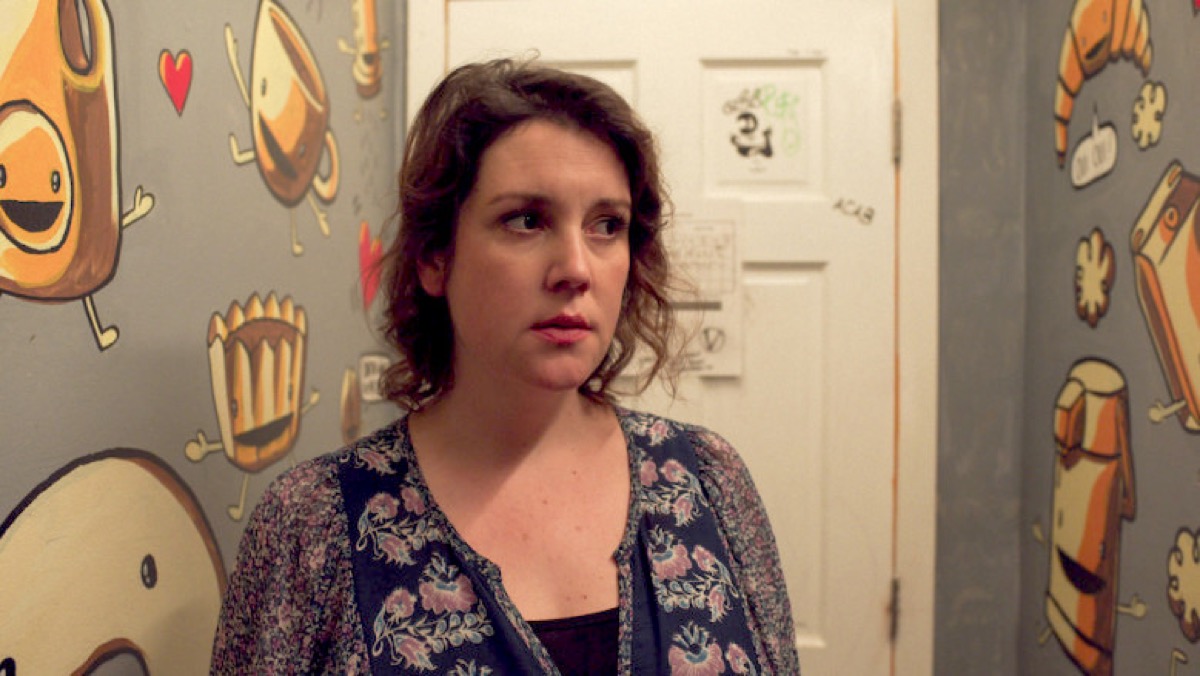Netflix’s Easy Offers a Perfect Post-MeToo Lesson on Empathy

**Warning: spoilers for Easy ahead.**
As more and more women and men come forward with their stories of sexual abuse, pop culture is mirroring this powerful revolution in movies and TV series. Many shows now include a #MeToo narrative arc, from Grey’s Anatomy to GLOW. This only proves the conversation prompted by those who are finally speaking up was important and long overdue. One of the latest shows to follow in the footsteps of real-life survivors is Netflix-original anthology series Easy, and it’s a lesson of empathy everyone should keep in mind.
Now in its third season, the series, created by Joe Swanberg, focuses on romantic and sexual relationships of a loosely interconnected group of people in Chicago. Season three premiered on 10 May 2019, bringing back some beloved characters, as well as introducing new ones, and touching on an aspect of the MeToo era we all know too well by now.
There’s only one thing more disheartening than finding out your favorite celebrity hurt someone with sexual misconduct, and it’s when, rather than acknowledging the pain they had caused—regardless of their own point of view—the accused stubbornly dismisses the impact of their actions. They’re so focused on defending themselves that they end up belittling the other person’s experience and doing even more damage in the process.
This shocking lack of empathy is a constant in many so-called “apologies” issued since the #MeToo movement first rocked the movie industry (and every other industry, really). It’s significant, in this regard, that very few public apologies we’ve been presented with over the last couple of years actually contain the word “sorry” or the verb “apologize.”
“Blank Pages,” the sixth episode of the new season, shows the audience where self-deprecating, grumpy comic author Jacob Malco is at. Played by an on-point Marc Maron, the character closely resembles another of the actor’s most recent roles: GLOW’s Sam Sylvia. And just like Sylvia, Jacob is problematic at times.
We already saw Malco have sex with one of his female students in season one. It was Allison (Emily Ratajkowski) who made her intentions clear, proving it was definitely consensual. Still, the age gap and the imbalance of power, albeit reversed in the ending, felt a little off. This season, Jacob is the protagonist of the show’s superbly acted #MeToo episode, one that metaphorically gives the finger to toxic masculinity.
Jacob’s former student, Beth (Melanie Lynskey), is about to publish a graphic novel where she reminisces about her own traumatic experience with him. This isn’t a case of sexual assault, luckily, but it’s another situation of an imbalance of power.
Beth, married at the time of the incident, and Jacob had a brief affair when she was his student. As soon as they had sex, Jacob—who had spent months telling Beth how great an artist she was and how he’d help her progress in her career—pulled the early 2000s equivalent of ghosting. His empty promises gone, Beth had to attend his class and face the silence treatment until the end of the year.
Some might argue this isn’t a #MeToo situation as the sex was consensual. However, pushing someone into any kind of sexual activity by taking advantage of one’s own privilege is still a form of coercion. Deliberately turning a professional or academic milieu into a difficult environment for someone, as a result of that relationship, is an even worse abuse of power.
In the episode, Jacob is worried that Beth’s graphic novel might ruin his reputation, fully embracing the trite “witch hunt” trope some men have trotted out in their defense ever since systemic sexual misconduct started being exposed. So, he tries to set up a meeting with Beth prior to publication.
While he’s dismissive of her viewpoint at first, his attitude changes completely after reading the pages Beth drew and wrote about their relationship. He, a self-proclaimed self-involved man who has shown very little empathy to women up to this point, is finally able to put himself in her shoes.
“I don’t think I ever really thought of the other side of it,” Jacob tells Beth, admitting her art, and her perspective, are valuable. The graphic novel, and especially those pages about him, are used as a visual device for Jacob’s eyes only. He is presented with the tangible evidence that another side to the story exists regardless of his own memory.
This is something that the typical “she said-he said” situation does not allow for, and it’s an added element that shouldn’t be necessary in order to be sympathetic to others, but it helps the episode make its point. Jacob delivers what is a textbook speech on how to deal with being called out.
He apologizes by actually using the s-word twice. He tears up and admits he might not be right after all. “It’s important that, you know, these conversations happen,” he says before parting ways with Beth.
And it’s just as important that pop culture doesn’t shy away from showing audiences that dealing with such conversations in a healthy way is possible.
(images: Netflix)
Stefania Sarrubba is an Arts and Culture journalist based in London. When she is not adding movies she will probably never see to her infinite watchlist, she likes spotting urban foxes, making plans and engaging in passionate conversations about women’s rights. Read her annoying tweets on @freckledvixen.
Want more stories like this? Become a subscriber and support the site!
—The Mary Sue has a strict comment policy that forbids, but is not limited to, personal insults toward anyone, hate speech, and trolling.—
Have a tip we should know? tips@themarysue.com